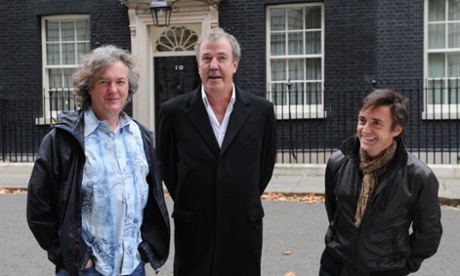
It’s become a matter of speculation that the rich female student patronising Jarvis Cocker in Pulp’s Common People might be Danae Stratou, wife of Greek finance minister Yanis Varoufakis. Stratou ticks the boxes – she comes from Greece, from a wealthy background, and studied at Central St Martin’s School of Art around the same time that Jarvis Cocker was there. So is it Stratou, or is it an urban myth? Who cares? At best it’s a Trivial Pursuit question. In all the important ways, it’s irrelevant.
First, respect to Cocker and Pulp for declining to name the student for the past two decades. How many of us would relish having our youthful alcohol-sodden guff coming back to haunt us?
An over-romanticised empathy with “poor folk” has long been the default setting of wealthy students, and most of them soon grow out of it. Others don’t even bother. For all her misguided blather, the student could at least be commended for trying to look outside her gilded world.
However, there is a wider issue here of – if you’ll forgive me – cultural focus. Common People is not a song about a spoiled condescending female, however vivid the character. The song – part poem, part manifesto – is about Cocker (back then) and people like Cocker (as he had been): the long-term disfranchised and perma-skint, who spend their lives feeling broke, scared and hopeless, without a safety net.
It’s about the scathing wit that gives them voice, and the wild anger that drives them. Crucially, it’s a story about a penniless working-class student rather than a rich slumming one, and in an increasingly polarised one-note cultural landscape, this sort of distinction seems ever more important.
It’s now widely accepted that, not just music but all branches of the arts are steadily becoming middle-class enclaves – affordable only to the privileged few. Which just never used to be the case. Some out there might not like the idea of the musicians of the past honing their craft on the dole and making scant effort to find a “real job”, the fact remains that that’s where a lot of great music came from.
Now these same creative types are doubtless being burned out on zero-hours’ contracts. And this is just one way that musicians, like actors, dancers, artists, writers and any other creative person, are being priced out – and subsequently hounded out – of the arts.
This is a disaster for everybody, including, paradoxically, the privileged few, who lose out on the kind of potent vibrant culture that’s only possible when everybody gets a fair crack at joining in. Instead it becomes the norm that cultural focus goes automatically to a certain brand of middle-class moneyed sensibility, as if this were the only type that matters or, worse still, exists.
The problem is that this can’t help but become one-dimensional and stifling. How could it not, when all art has to be viewed through one incredibly narrow filter before it’s deemed worthy of attention, never mind celebration?
Moreover, with this kind of constriction, it’s not just talent that’s lost, a tragedy in itself; it’s also different kinds of people, backgrounds, textures, viewpoints and stories.
Which is where Common People comes in. This is a song that belongs without question to the disempowered classes. It’s the narrator (Cocker) who counts, and how he wants to tell his story. It barely matters who the student is – she’s a mere cipher, and that’s how “she” should remain, now more than ever. That’s why I don’t care if the student was Stratou or some other. Increasingly, all we hear about (and from) are people like that, usually strumming on a guitar wailing about “finding themselves” on a beach in Goa. Common People is about hearing from someone like the young Jarvis Cocker, the sort now seldom heard – someone sardonic, angry and – above all – totally skint.
Jeremy, wait. This move could be a total car crash

Former Top Gear presenters Jeremy Clarkson, Richard Hammond and James May are rumoured to have been offered a deal to re-form for ITV.
Well, it had to happen – a globally successful trio and the opportunity to grab the entire “brum brum” dream team intact. All going well, the guys could be back, filling petrol tanks, flicking each other with wet towels and making “hilarious” xenophobic jokes before you could say: “Is the kitchen still open?”
Still, Clarkson and the gang should be wary of Des Lynam syndrome. Lynam was considered the Beeb’s sports jewel in the crown, but the magic didn’t travel well to ITV. See also Adrian Chiles, and Morecambe and Wise. Weirdly, it’s as if certain entities only seem to work in the context of the BBC, even if all the major players are involved.
Perhaps ITV has learned the lessons of the past, and the move would be a great success. However, everyone should be aware, should the deal go ahead, that replicating the success that Top Gear enjoyed at the BBC (and without the name, which is owned by the Beeb) is not necessarily a done deal. Even if Clarkson can control his temper over his poor hungry tummy.
Perhaps Tinder doth protest too much
Please bear with me while, not for the first time, I fall to my knees, hands clasped together, and give thanks that I wasn’t single and looking for love in the time of Tinder.
What must it be like to be judged and found wanting with a single nonchalant swipe? At least when I was young, people put a bit of an effort into their soulless sexual objectification.
Now it seems that dating app Tinder has come down with swipe-anxiety, or at least gone a bit shy.
It’s taken umbrage at a GlobalWebIndex study that says that it has a large number (42%) of married or attached people using their app to have affairs. Fancy.
However, Tinder says that the study is too small to be accurate, and the bulk of the users are too young a demographic to be married. Also that Tinder is a social network and not only for arranging sexual encounters.
Well, sorry your majesty! In truth, the average age of users doesn’t mean Jack – even the young can be partnered up. Besides, by definition, people who have affairs are fairly adept at lying, and this could conceivably include their age. Just saying.
As for the focus not being on sexual encounters, I’m genuinely confused. I would have thought that Tinder was as much a signifier of this as pots of pampas grass were for swingers. I thought that this was what people actively liked about Tinder: it would seem that I’m completely wrong.
Or perhaps it’s Tinder that could be mistaken. Surely it knows what it is, just as everyone else knows what it is, and generally it isn’t where people arrange to meet up for a cup of tea with their lovely new friends.








